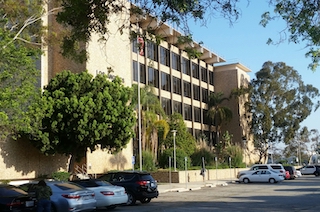The Fifth Amendment to the U.S. Constitution states: “No person . . . shall be compelled in any criminal case to be a witness against himself.” This right technically would not apply in a domestic violence restraining order (DVRO) hearing because such a hearing is in civil court, not criminal court.
However, when there is a pending or active criminal case arising over the same incident or events at issue in a DVRO, a person can invoke the Fifth Amendment to prevent the disclosure of information they “reasonably believe could tend to incriminate them or subject them to criminal prosecution.” A & M Records, Inc. v. Heilman (1977) 75 Cal. App. 3d 554, 566; see also Warford v. Medieros (1984) 160 Cal. App. 3d 1035, 1045.
The Gist of this Article: The right against self-incrimination does apply in most hearings for a civil restraining order, but not in all. To understand when this constitutional right can be invoked to continue (delay to a later date) such a civil restraining order hearing, as well as how to request this properly, please read the following article.
One must be careful and clear about how a judge may regard invoking this right. If one is a defendant in a criminal case, for example, for domestic violence, vandalism or criminal threats arising out of an incident of events involving that person’s girlfriend or boyfriend, former spouse, etc., and then this defendant files a petition for a DVRO, the judge will not permit this petitioner to invoke his Fifth Amendment right. The judge would consider such a petition as a waiver of the Fifth Amendment right.
However, if one is a defendant in a criminal case such as described above, and the alleged victim in such circumstances files a petition for a DVRO, the judge most likely will honor the defendant’s assertion of his or her Fifth Amendment right against self-incrimination.
However, this right to “block” the DVRO does not last forever and the judge will be mindful of the petitioner’s right for a DVRO, or at least a hearing for such. In response to such conflicting rights, in People v. Coleman (1975) 13 Cal. 3d 867, 884-885, where Coleman faced a criminal case with a probation violation at issue and a parallel civil DVRO, the judge ruled that testimony in one proceeding could not be used against the probationer (Coleman) in another proceeding except in certain circumstances, thus allowing him to testify in one hearing without fear his testimony would be harmful in a subsequent proceeding. Coleman, supra, at 889.
 Torrance Courthouse
Torrance Courthouse
Most judges, however, are not willing to allow such an arrangement and prefer instead to simply continue the hearing date for the DVRO while the criminal matter proceeds. Pacers, Inc. v. Superior Court (1984) 162 Cal. App. 3d 686, 690 (staying civil discovery until disposition of the criminal matter) and Avant! Corp. v Superior Court (2000) 79 Cal. App. 4th 876, 882.
This can result in significant problems for the victim pursuing a DVRO, as such delays can affect very consequential rights. After all, in DVRO hearings, the judge can make child custody and visitation orders under Family Code § 6323, separate (financial) support orders under Family Code § 6341, residence exclusion orders under Family Code § 6321, order the batterer to attend batterer’s program classes under Family Code § 6343 and award attorney fees and costs to one party under Family Code § 6344.
These delayed consequences can invite mischief in both the criminal case to delay the matter, such as switching attorneys to request additional time to prepare, filing motions that may have little to no merit to delay proceedings and requesting more time to conduct more discovery in the criminal case. Similarly, in the civil proceeding, one party can annoy another party by giving ex parte notice of hearings, but then not appearing.
Consequently, judges will be wary of allowing a continuance of the DVRO for extended periods of time, not only so that petitioner can have her or his petition adjudicated, but also to gauge if the criminal case is being delayed to delay the DVRO proceeding, just to frustrate and demonstrate control over the former spouse or girlfriend.
Knowing these competing concerns, a defendant in a criminal case also facing a DVRO is wise to present a respectful, cooperative demeanor to the judge handling the DVRO. Very often, the criminal case is being heard in the same courthouse. Therefore, it is not unusual for judges to discuss how a case is proceeding in each other’s courtrooms. Defendant certainly has the right to defend himself in his or her criminal case, but it must be done in a professional manner and is best done with an attorney the judges respect for not engaging in games with an ulterior motive to delay.
For more information about domestic violence restraining orders, please click on the following articles:
 Torrance Courthouse
Torrance Courthouse